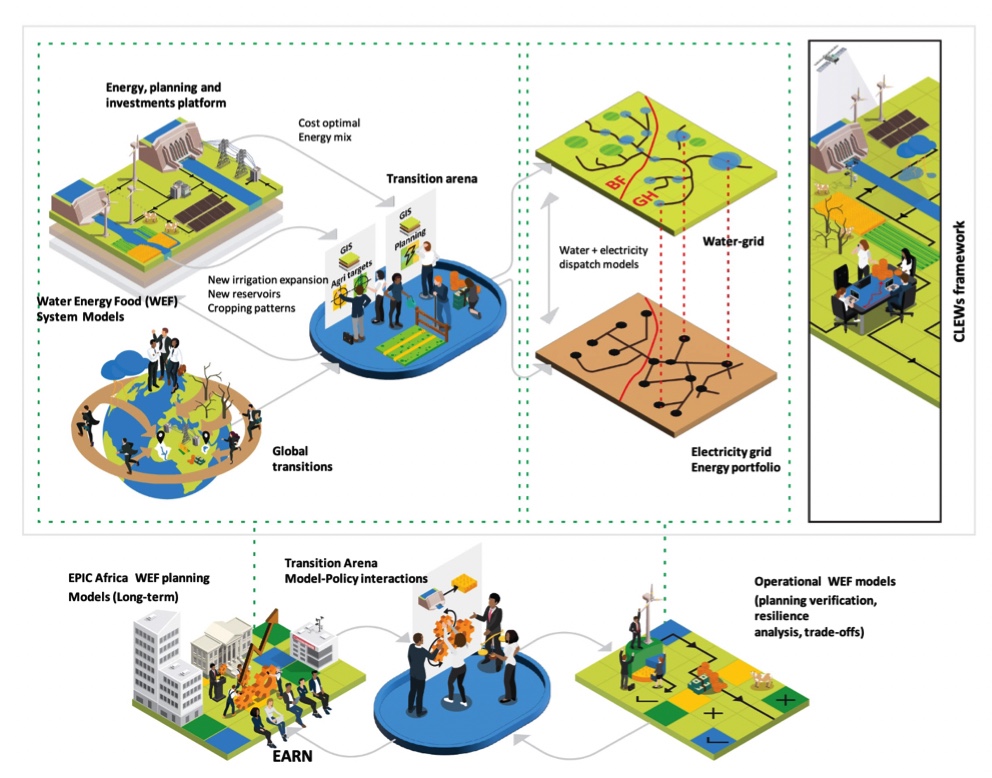Building sustainable water energy food pathways
Achieving clean energy access and food security targets in Sub-Saharan Africa

EPIC Africa
emphasises the impressive beauty, diversity, and potential of the African continent in its human and natural resource endowments
Our Objective is clear and simple.
Over 600 million people in Sub-Saharan Africa (SSA) lack access to electricity and the IEA’s World Energy Outlook 2021 forecasted an increase of the number of people without electricity access by 2% between 2019 and 2021. In addition, access to clean cooking fuels is very low at 17% of the population, with inefficient biomass cooking leading to severe health effects, degradation of land productivity and deforestation . Expanding access to electricity and clean cooking is expected to contribute to meeting many of the UN’s Sustainable Development Goals, including ending hunger, poverty, ensuring quality education, and ensuring access to energy, while promoting economic growth, gender equality, among other goals.
Supporting an era of economic development and self-sufficiency
for countries in SSA that have suffered a major setback due to covid-19
Expanding access to electricity and clean cooking
in areas of Sub-Saharan Africa that don't have access to them
Promoting economic growth, gender equality,
among other goals in the United Nations sustainable development goals

EPIC Africa CLEWs Framework for Long-term Planning and Operational Assessment of WEF Systems. The picture depicts how Long-term energy investment planning is coupled with agricultural and water infrastructure decisions, and driven by operationalizing visions by the relevant stakeholders in a Transition Arena, and considering global climate and socio-economic scenarios (top-left). Operational water and energy grid models, with sufficient spatial and temporal details, are used to simulate and assess long-term planning iteratively (top-middle). The bottom feedback loops depict the iterative interaction between models and policy using the Digital Engagement Platforms for visualising outputs of different models and the Transition Arena processes of co-creation and stakeholder engagement, including the EPIC Africa Research Network (EARN).
Renewable Energy
Aiming to fulfil the UN SDG target no 7, there is a need to substantially increase the share of renewable energy, which is abundant on the African continent. However, solar and wind are variable in nature, leading to the need for energy storage to match supply and demand, manage peaks, enable electricity arbitrage and minimise the need for curtailment.








